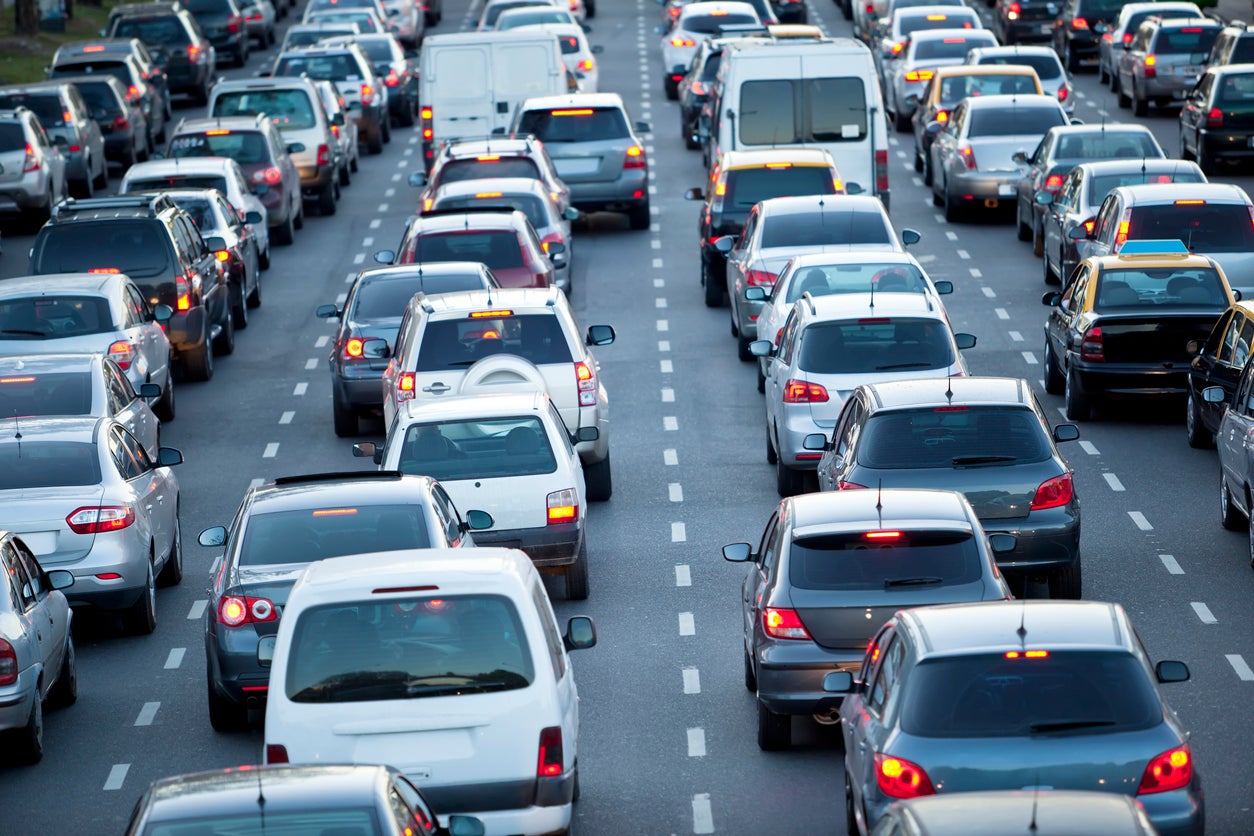We can save countless emissions by not travelling to work
Please send your letters to letters@independent.co.uk

In Monday's edition, there were two articles on working from home. There were several others on the IPCC report on climate change. Nowhere was any link drawn between the two.
We have a unique set of circumstances bequeathed by the pandemic that provides office workers, companies and society with the raison d’etre to change working practices for good.
The obvious link between the two is the impact home working can have on emissions caused by the billions of countless hours we spend sitting in slow and stationary traffic, harming our planet and stressing ourselves out, while losing valuable time never to be regained.
A sustained and balanced increase in home working would allow an immediate and massive saving in transport emissions, and allow people to regain a better balance in life.
The problem is, of course, convincing office managers to seize this opportunity and think about the bigger picture of the environment and their colleague’s welfare.
Perhaps the government needs to take the lead and offer tax incentives for companies that can demonstrably show a sustained transfer of staff from office to home working.
In tandem with this, there should also be a reward for more flexible working days so that we are not all on the road at the same time.
If companies, staff and the authorities work together everyone stands to benefit, not least our planet.
Eugene Zdrojewski
Hampshire
Inflating exam grades doesn’t work
A growing fraction of students going on to university will struggle to come up to scratch, especially among this year’s intake when faced with written exams for the first time since GCSEs. But, despite this, universities will respond to market forces, competing as they do for reputation and positions in league tables, and will ensure that the distribution of degree classes keep “improving”.
Mums and Dads and Grans and Grandads will be more than pleased that their offspring and grandchildren have attained a coveted university place, but must occasionally wonder what opportunities they might have had if they had been judged by today’s standards. And many graduates will end up saddled with debts while employed in jobs that don’t require degree qualifications.
The nation needs a serious debate about its education system. Demonstrably, the present secretary of state is not the person to lead it.
Ian Reid
Kilnwick
A step back for telecoms
Yesterday, Vodafone announced that it will be following in the footsteps of EE and will become the second major UK mobile network operator to reintroduce roaming charges for new and upgrading customers travelling across Europe. As a business telecommunications service provider, this feels like a step backwards for our industry.
Every business has heavily relied on technology for the past 18 months to remain operational and keep employees connected throughout multiple lockdowns. As time goes on, it seems this will have a permanent impact on working patterns. For many, remote work is here to stay.
In conjunction with free-roaming across Europe, remote working can allow Brits to work from abroad as they would from home without incurring any extra costs or encountering any extra obstacles. However, the reintroduction of roaming charges is a step in the wrong direction that will make things harder for companies wanting to adopt a more modern way of working. If remote working is going to work, the telecoms industry needs to make things easier, not harder.
David Baird,
Director of Crystaline
Saving the planet
During the Second World War that wonderful cartoonist, Fougasse, drew simple but potent messages which were posted widely. Instead of giving us 148-page reports, could we not adopt the same method to stir us all to action. “Is your journey really necessary?” was memorable and could be a start.
Muriel Bradley
Cambridge
Talking sense
There is more common sense on your letters page each day than I hear from politicians in a year.
May I commend in particular, Susan Alexander’s succinct reminder that there’s no hope for planet Earth while the human population continues to expand and choke it to death, and Lynn Brymer’s expression of disgust at the overblown ego fest that is the Olympics.
All I can say is… quite right too!
Penny Little
Oxfordshire






Join our commenting forum
Join thought-provoking conversations, follow other Independent readers and see their replies
Comments